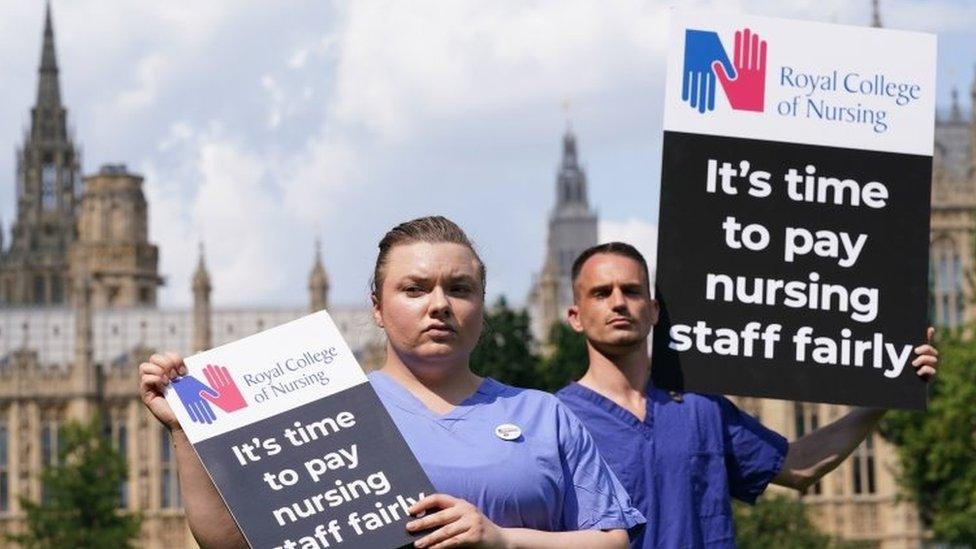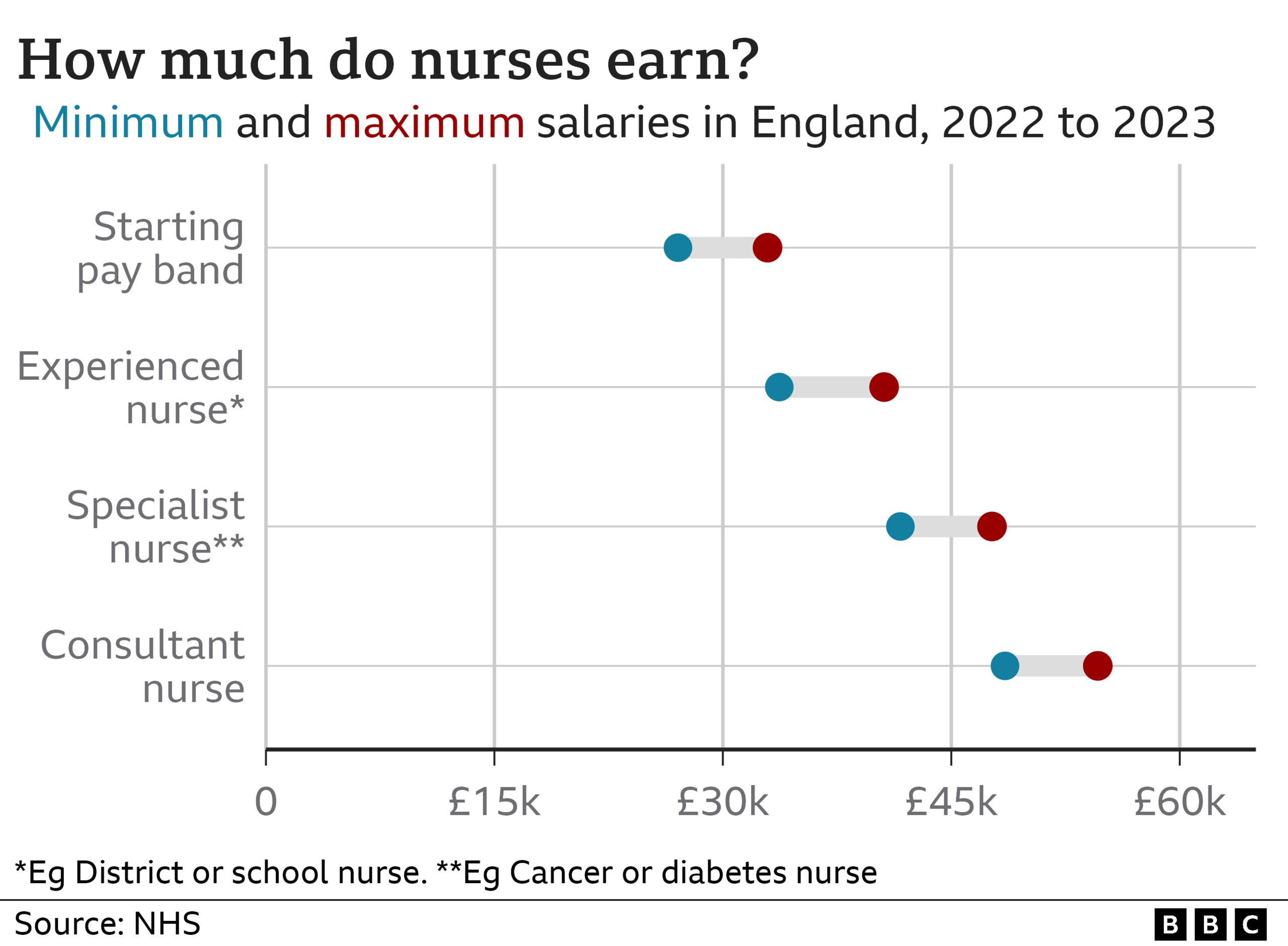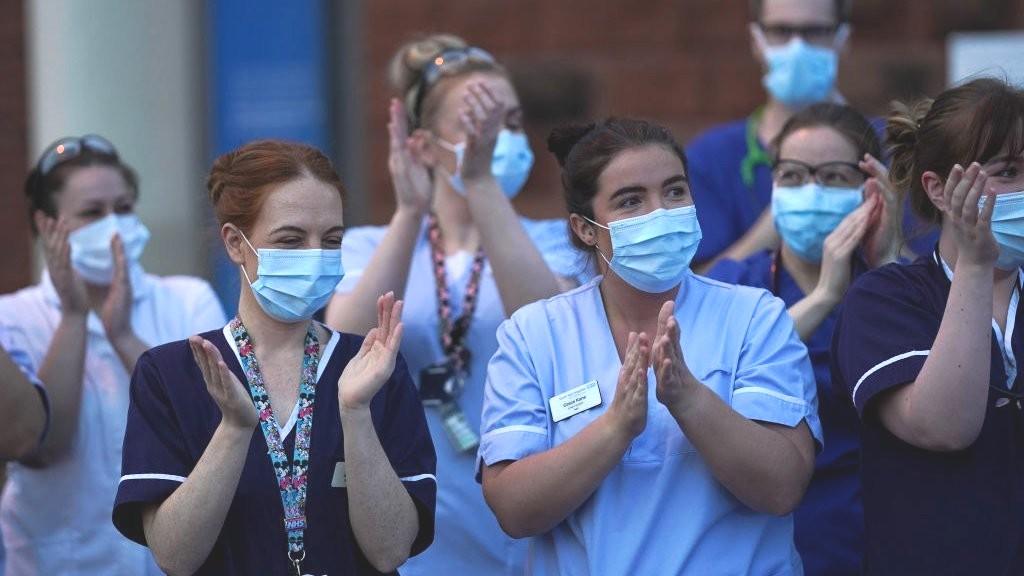Top hospitals targeted by nurse strikes
- Published

A host of leading hospitals will be affected in next month's nurse strikes, the Royal College of Nursing says.
They include Great Ormond Street and Alder Hey children's hospitals and leading cancer centres.
Overall, around a quarter of hospitals and community services in England and nearly all those in Northern Ireland and Wales will see nurses walkout on 15 and 20 December.
Emergency care will continue to be provided during the strike action.
In total, 76 NHS organisations will see nurses walk out.
They include leading cancer centres the Royal Marsden and Liverpool's Clatterbridge centre alongside major hospitals in Birmingham, London, Liverpool, Newcastle and West Yorkshire.
All the health boards in Northern Ireland and all-but-one in Wales, the Aneurin Bevan, will see strike action take place.
But action has been suspended in Scotland after ministers there made a fresh pay offer, which the RCN is consulting on.
Meanwhile, Unison has announced ambulance staff including paramedics and call handlers, have voted to strike in five of England's 10 ambulance services. A walkout is expected before Christmas.
Turnout was too low in the remainder for the votes to count, as well as in all but two of England's hospital and community trusts.
No services in Wales voted for strike action, but a walkout will happen across all services in Northern Ireland on 12 December, Unison said.

Your device may not support this visualisation

Overall, up to 100,000 nurses could be involved in the nurse walkout the RCN says, which would amount to about a quarter of nurses in those three nations.
The RCN warned the government if a deal could not be agreed more services would be involved in the strike action next year.
RCN general secretary Pat Cullen said: "Ministers have declined my offer of formal pay negotiations and instead chosen strike action.
"It has left us with no choice. Nursing is standing up for the profession and their patients.
"We've had enough of being taken for granted and being unable to provide the care patients deserve."
Watch this video quiz to test your knowledge of nurses' pay
Life-preserving care to be provided
The strike action will last from 08:00 to 20:00 GMT.
Under trade union laws, the RCN has to ensure life-preserving care
This is likely to mean some cancer services, urgent tests and scans and ongoing care for vulnerable patients will be protected alongside A&E and intensive care - although it will be up to local health bosses and union leaders to negotiate exact staffing levels on strike days.
But it seems almost certain the walkout will increase the backlog in non-urgent hospital treatment - a record seven million people are already on the waiting list in England.
GP services, however, will be unaffected as nurses working in practices were not entitled to take part in the ballot.
In England, the RCN only has mandates for strike action in just over half of NHS trusts as the turnout was too low in the rest.
For the forthcoming strikes the union's leadership has decided to only announce walkouts in around half of those eligible to take action.

The RCN has called for a rise of 5% above the RPI inflation rate, which currently stands at above 14%, but no UK nation has offered close to that.
In England and Wales, NHS staff, including nurses, have been given a rise of at least £1,400 - worth about 4% on average for nurses.
In Northern Ireland, nurses are yet to receive a pay award because there is no working government.
Earlier this month Scottish ministers made a fresh offer worth more than 8% for a newly-qualified nurse, with more senior nurses being offered less. This prompted the re-starting of talks.
During the ballot - the results of which were announced two weeks ago - the RCN had argued this year's below-inflation pay award came after years of squeezes on nurse's salaries.
But England Health Secretary Steve Barclay has said the RCN's demands are not affordable.
He has said the government had met the recommendations of the independent NHS Pay Review Body in giving its award.
And it followed a 3% pay rise last year, in recognition of work during the pandemic, despite a public-sector pay freeze.
The Welsh government said it was unable to enter pay talks without extra funding from the UK government.
This will only be the second time RCN members have been on strike.
In 2019, nurses in Northern Ireland walked out over pay, while nurses who are members of Unison in England walked out in 2014 over pay.
A host of other major health unions, including Unison, the Royal College of Midwives, GMB and Unite, have all started balloting members.
Related topics
- Published25 November 2022

- Published29 November 2022

- Published21 June 2022
- Published7 January 2021
